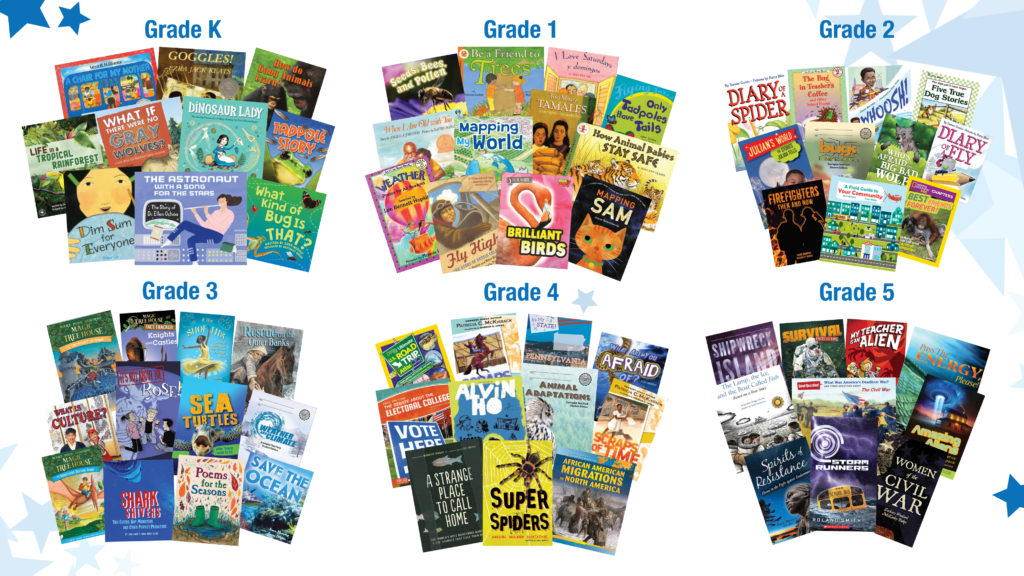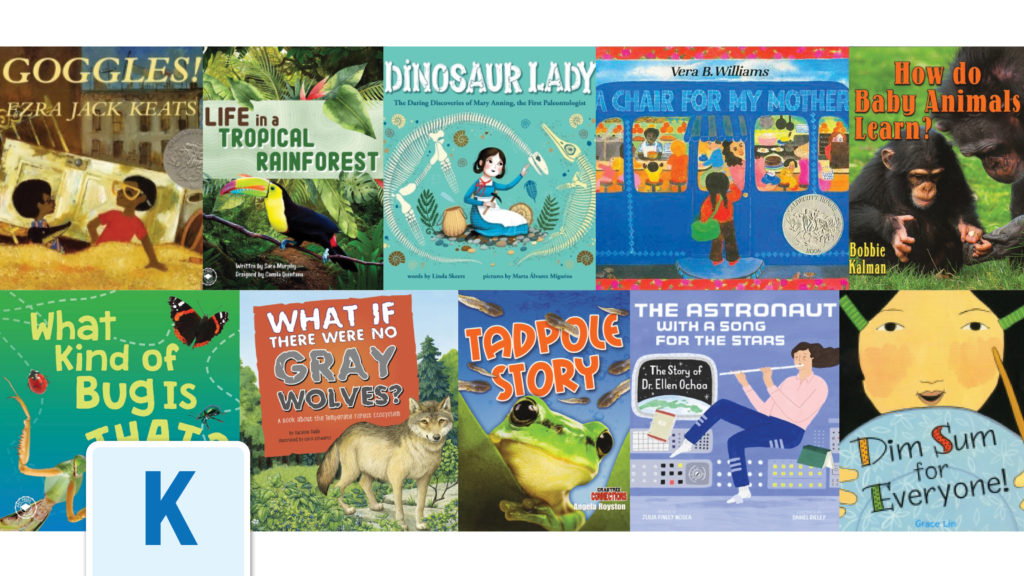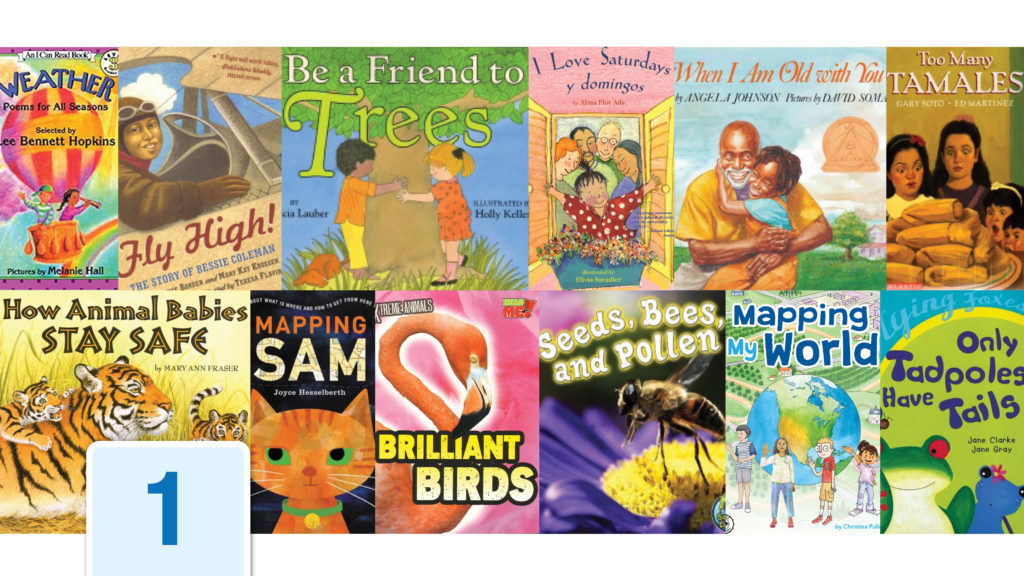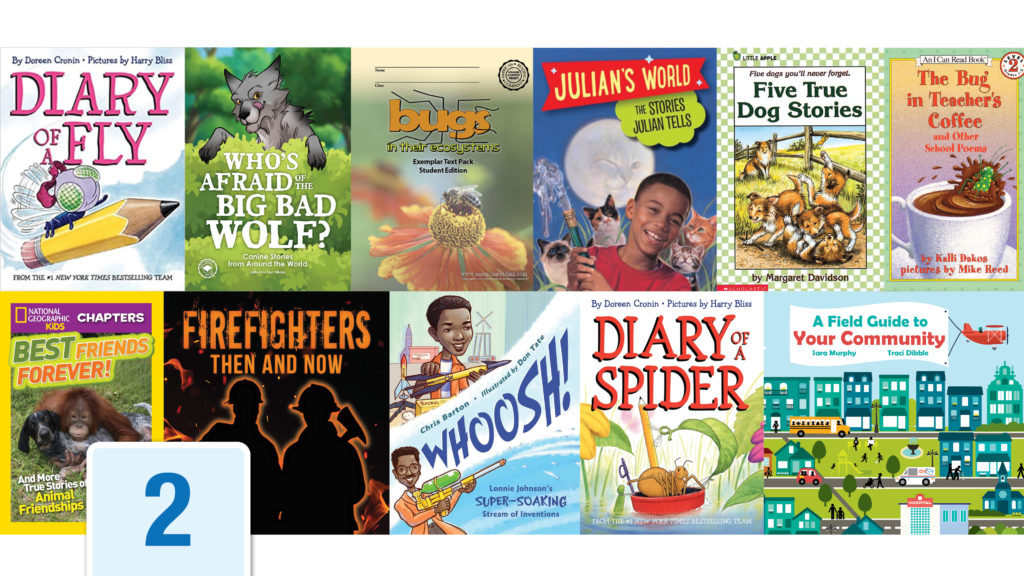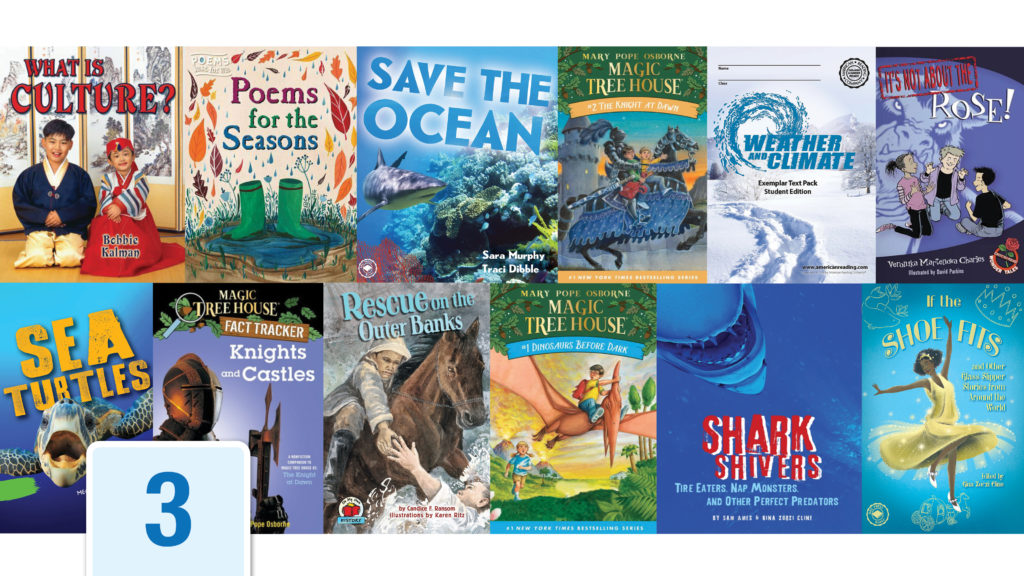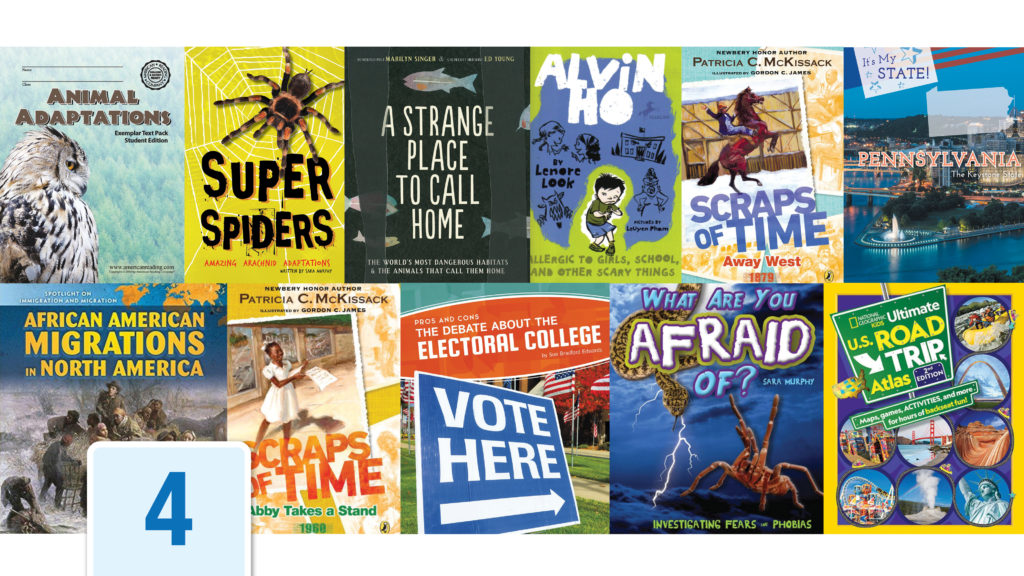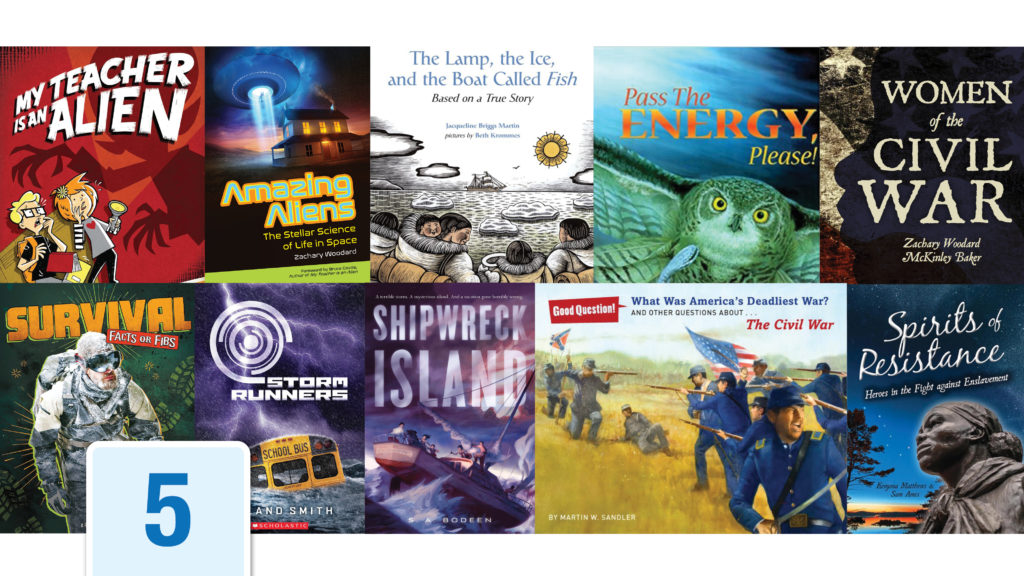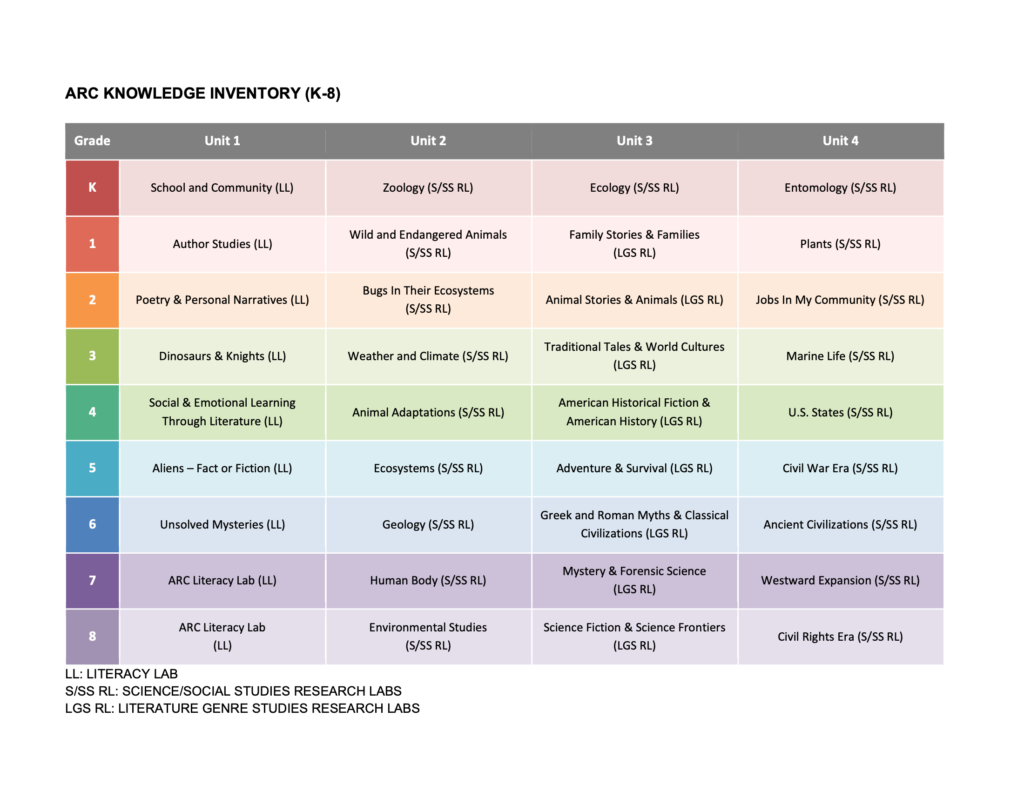ARC Core (K-5)
In ARC Core, students acquire science, social studies, and literary genre knowledge through daily reading of quality trade literature, dialogue with their peers, independent research, and writing. ARC organizes around four compelling topic-based modules each year centered on a final writing task, a set of two to three challenging core texts, and a related research library. Schools can customize some components. ARC cultivates a culture of reading and writing both in class and at home. Its explicit, systematic foundational skills toolkit is differentiated so that students move from where they start to become skilled, avid readers. ARC is available in a full Spanish version.
Rich, rigorous, diverse texts:
How ARC Core designs for:
Deep knowledge building
ARC Core’s topic-based modules feature a research lab that develops reading and writing expertise and deep knowledge. In addition to shared content-rich readings, students choose connected topics to explore, inspired by their interests. For example, in grade 4’s Animal Adaptations Unit, after the class studies behavioral adaptations, students research the specific adaptations of their self-selected animals supported by dozens of related books. Students learn together, motivating and engaging each other in essential study.
Grammar, vocabulary, discussion, and writing activities connect to the topics and solidify core learnings. Culminating assignments focus on the essential takeaways from class readings and student research, using teacher and peer feedback to build students’ confidence, capacity, and skills. At each module’s conclusion, students present their research to showcase their expertise in the content and writing mode of the unit.
Systematic foundational skills and fluency
ARC Core combines explicit, systematic, whole-group foundational skills instruction with differentiated support. The IRLA assessment system precisely tracks students’ progress, including their stamina and enjoyment with what they’re learning. Its toolkits are designed around a combined analytic and synthetic phonics approach. ARC uses authentic trade literature and a word study notebook with decodable text to provide students with important practice. ARC’s program is brimming with fun games and activities addressing phonemic awareness and manipulation, spelling, and phonics. Grade-level fluency remains a priority as students frequently read to each other from a wide variety of texts.
Equitable access to challenging texts
Students regularly work with grade-level core texts and select related topics to research, fueled by their intrinsic curiosity and supported by hundreds of related titles at a wide variety of complexity levels. Abundant supports are available, along with an array of easy-to-follow discussion routines. In addition to text-dependent questions, ARC invites student-initiated questions, building students’ ownership over their learning.
Topics of study
Learning and exhibiting deep knowledge
Foundational skills instruction
Access ARC Core
ARC Core was developed and published by the American Reading Company.
ARC Core (K-5) in districts
05/25/2023
“They just keep going for it. And I think that that has been probably the most valuable for my emerging and struggling readers.”
05/17/2023
“Every lesson that we observed in the last few days had high level questioning and lots of discussion.”
05/17/2023
“Good writing begets good readers. The more they write, the more they read. The more they want to do it. And we have kids soaring.”
05/17/2023
“I feel good when I go home at night, and I know my students feel good. I’m not leaving someone out or making someone feel left out.”
05/17/2023
“He sees himself as a reader. He’s fully engaged. He’s using it as a chosen activity and I was like, ‘yes!'”
05/17/2023
“Across content areas in science and social studies, this is going to help our children build knowledge and be independent learners.”
05/17/2023
“I have yet to have a seven or eight year old telling me that they can’t read or they don’t read. Not one.”
05/17/2023
“Kids are building a knowledge base, but they’re also getting a lot of application.”
05/17/2023
“This program provides the layers that all students get that knowledge base despite the level of learning and abilities that they demonstrate.”
05/17/2023
“he kids want to read, they want to write, and I think if that starts in kindergarten, it’s an overall love for school.”
05/16/2023
“The teachers in fifth grade came out of the state assessment saying to me, they actually understood the paired passage question.”
05/16/2023
06/06/2021
“Within one month, all of them had grown a year’s growth.”
04/20/2021
“Change can be uncomfortable….Teachers have to know the standards. You have to know the why behind your instruction.”
04/20/2021
“Kindergarten is writing whole pages. First grade is writing multiple pages, stories, essays, they’re researching.”
04/20/2021
“They’re already looking at, ‘What do I think from this is fact? Because I can prove it by the research I’ve done.”’
04/20/2021
02/26/2018
